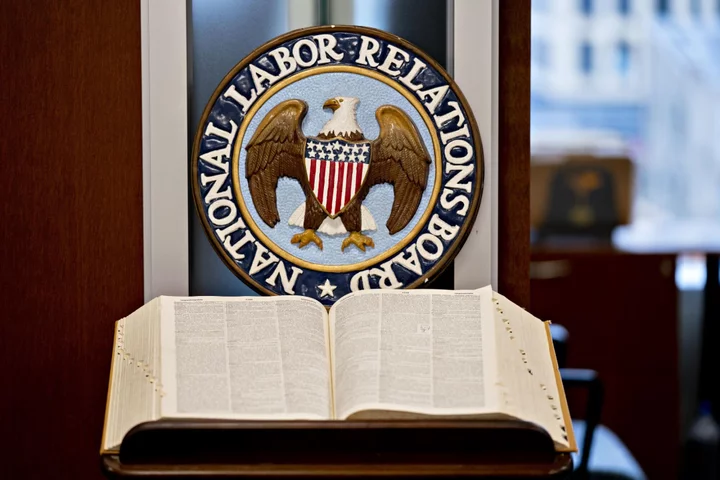When Cher Scarlett began speaking up about labor issues at Apple Inc., she knew she was at risk of losing her software engineering job, but was confident she could find another.
Yet two years after her departure from the iPhone maker, Scarlett says she has struggled to secure employment, lending credence to fears among many tech workers about the consequences of whistleblowing. Scarlett was feeling optimistic after she had an interview at Mozilla Corp. in 2021, which left her with the impression that she was the company’s first choice for a job. Ultimately, though, the process went nowhere.
The National Labor Relations Board issued a complaint Tuesday alleging Mozilla refused to hire Scarlett because of her past labor activism. The agency’s prosecutors called on Mozilla to offer Scarlett the position she applied for in 2021 or a similar role, and to otherwise make her whole for damages as a result of not being hired. Scarlett and her lawyer, Laurie Burgess, believe the case has the potential to defuse one of the most powerful factors chilling workplace activism in Silicon Valley: the fear of being blacklisted.
“Watching people not be able to get a job in their field, that is far worse than the threat of losing the job you have,” Scarlett said.
Mozilla and Apple didn’t immediately respond to a request for comment.
Starting in 2021, Scarlett was a prominent leader in efforts to mobilize Apple employees about workplace issues under the banner #AppleToo, and also helped encourage unionization efforts among the company’s retail staff. A separate charge Scarlett filed with the NLRB against Apple remains pending.
Federal labor law prohibits companies from retaliating against prospective and current employees because they took collective action about working conditions, with or without union backing.
It’s rare to see the NLRB accuse a major tech company of discrimination for failing to hire a worker. That’s likely because the cases are so tough to prosecute. They usually hinge on circumstantial evidence, such as comparing the credentials of workers who were hired with the ones turned away. Some companies even reject other worthy candidates in order to avoid getting caught discriminating against a particular activist, said former NLRB member Mark Gaston Pearce, who chaired the agency under former President Barack Obama.
“An employer may do a drive-by rejection where they reject a bunch of people for frivolous reasons for the purpose of covering those tracks,” he said.
In recent years, the tech industry has seen an uptick in worker activism and employees are increasingly vocal about working conditions and concerns about the societal impact of the technology that they’re building. But some of these workers have paid a steep price, said Burgess, who frequently represents tech whistleblowers. A number of her clients have had such a hard time finding new jobs in Silicon Valley that they’ve made career changes, she said.
Complaints issued by NLRB prosecutors are considered by agency judges, whose rulings can then be appealed to the labor board members in Washington, and from there to federal court. The agency lacks authority to hold executives personally liable, or make companies pay punitive damages for violations.
If the NLRB succeeds in prosecuting a high-profile case about a tech company refusing to hire someone because of their activism at a prior job, that could help embolden more workers elsewhere, said Pearce. But if the prosecutors fail, he said, “it would have a chilling effect.”
Yet Scarlett says simply bringing the case will send a powerful message to employers.
“If there’s no threat of anyone ever getting caught,” Scarlett said, “why would they ever stop?”
(Updates with detail and history from sixth paragraph.)

